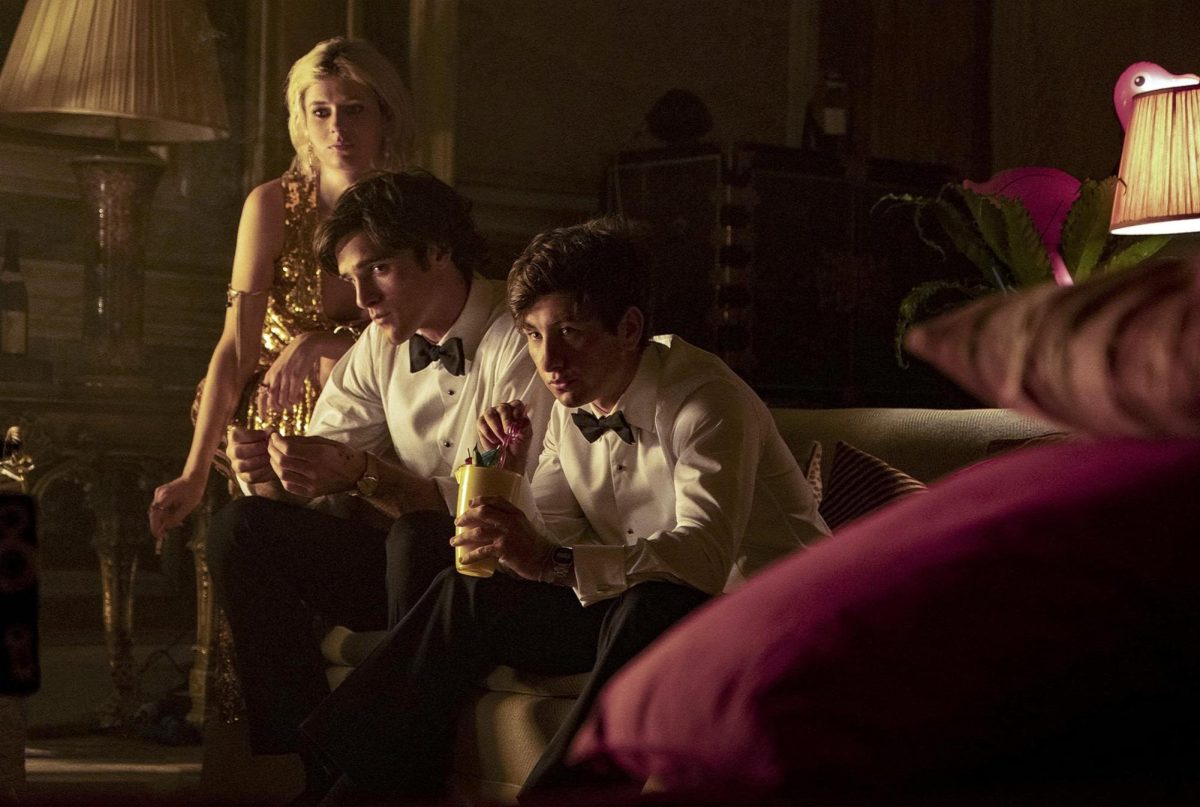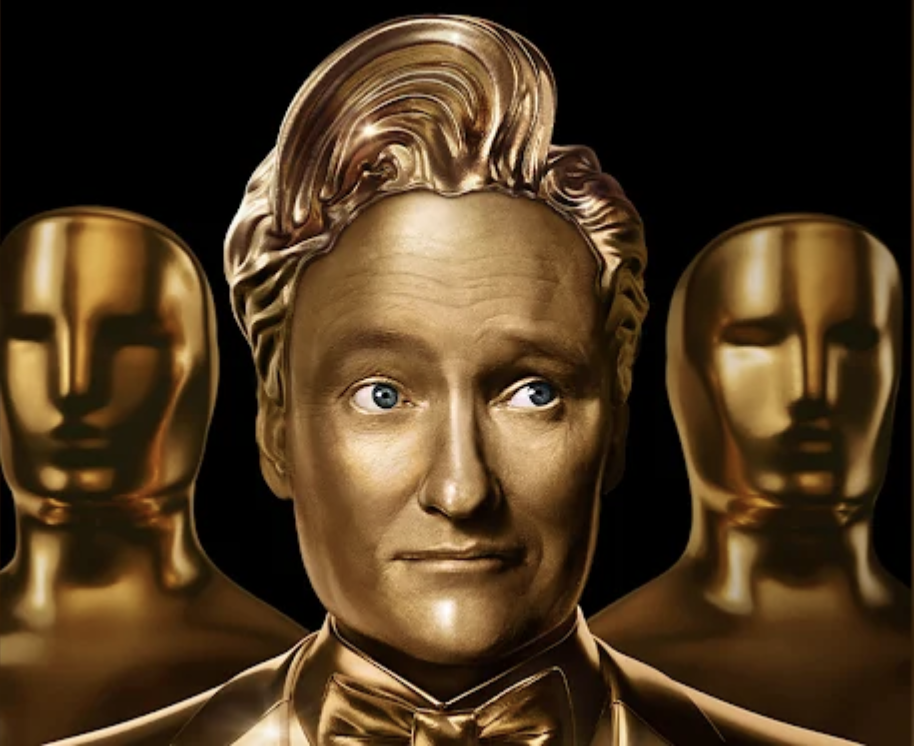I first watched Saltburn in my friend’s dorm room as a prelude to the night’s Saltburn-themed
party. We projected the movie onto a white sheet pinned to their wardrobe, which gave the film a wrinkled, cotton texture. All I knew going into the viewing was that Saltburn was about college students like me and that it might be a little disturbing. I had no idea what I was about to experience, and once I finished watching, it took a while to decipher the feelings it left me with.
Saltburn, directed by Emerald Fennell, is set in 2006, technically making it a period piece. The film dips its toes into themes of wealth and its intersection with obsession and desire through the story of Oliver Quick (Barry Keoghan). Quick struggles to fit in at the University of Oxford as a scholarship student in a sea of rich peers. After a seemingly random incident involving a broken bike, Quick befriends Felix Catton (Jacob Elordi). Catton is an affluent student who soon takes pity on Quick and his tales of neglectful and abusive home life. He ends up inviting Quick to stay in his country home, Saltburn, for the summer. At a house inhabited by the ghosts of multiple King Henrys, Quick soon weasels his way into the Catton family through one manipulative encounter after another.
I love movies that unabashedly explore uncomfortable topics and examine them in a novel way. Saltburn tries, yet I struggled to decide how successful that attempt is. How much of the movie raises a genuine discussion about obsession with extreme wealth and desire, and how many scenes fall short of reaching a point? I vacillated between these two opinions and might have wholly disregarded the film were it not for the last scene.
Saltburn’s beautiful cinematography presented a story drastically different from that of the script and plot. Each shot represented wealth so gorgeously that I couldn’t help but admire Saltburn’s prosperity. In this way, Saltburn implicated me in its horrors, raising a fascinating discussion about the allure of wealth. Even though every character was highly unlikeable, the cinematography almost made me sympathize with them. As Quick and the other inhabitants of Saltburn lounged in the grass, I could feel the sweltering sun’s rays beating down on them and the heavy laziness of heat and riches. When Catton led Quick around his mansion, I envisioned myself stumbling behind them in awe. The success of the cinematography extended beyond beautiful shots. The movie was shot in a 4:3 ratio, which is uncommon in modern film. This nearly square aspect ratio brought to mind the voyeurism that comes with admiring wealth from afar.
While the cinematography examines wealth at a deeper level, the script and plot itself come across as much more shallow. Many lines seem to reach for something more meaningful than they can grasp. When reflecting upon his obsession with Catton, Quick says, “I loved him. By God, I loved him.” He then rolls up his sleeves and adds, “But sometimes… I hated him.” When I see a character rolling up their sleeves, I expect more hard-hitting words to leave their mouth. The plot, too, falls short of a deep analysis of desire. Several graphic sex scenes worked more to produce shock value than to advance the story.
However, everything fell into place for me after the much-discussed last scene, in which Quick dances fully nude throughout the house. It seems out of place after such a dark story and leaves a lot of questions unanswered. In this moment, Quick finally unveils all the masks he has put up throughout his time manipulating the Catton family. He is naked and vulnerable, joyously dancing through Saltburn’s magnificent rooms. Fennell explained to The Wrap her reasoning for including this scene.
“My preoccupation is making an audience complicit, making them laugh when they shouldn’t maybe be laughing, making them squirm or feel complicated feelings,” Fennell said. “So the end needed to have that thing where you could not help but to be on Oliver’s side.”
Considering Fennell’s reasoning combined with the subversiveness of the last scene made me appreciate the film despite my previous hesitations. Seeing Quick in such a contented state made me forget about all his immoral actions. To me, this was the film’s point: despite being graphically presented with the horrors of wealth and obsession, there is still something appealing about the Catton family. As Quick danced, all I wanted was to get up and dance alongside him.












